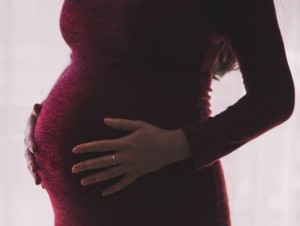
Google challenges a woman’s claim of ‘pregnancy discrimination'
A wrongful dismissal lawsuit that challenges whether pregnancy is a protected ground under the Ontario Human Rights Code will be worth watching, says Toronto employment lawyer Ellen Low.
Low, principal of Ellen Low & Co., says she was intrigued by Google Canada’s statement of defence in the lawsuit filed by a woman who claimed she was fired within days of telling the company she was pregnant.
According to the National Post, a woman is claiming wrongful dismissal because of “pregnancy discrimination.” However, Google countered by arguing that pregnancy is not a protected ground under the Code.
“It is an interesting circumstance,” says Low, who is not involved in the case but comments generally. “At first, I wondered if Google Canada was consulting with its U.S. legal team and looking at the claim from an American perspective. But I do empathize to some degree only in that Section Five, Subsection One of the Human Rights Code doesn’t specifically enumerate pregnancy as a protected ground.
‘Very long history of Code related decisions’
“While the section states every person has a right to equal treatment with respect to employment without discrimination because of race, ancestry, place of origin, color, ethnic origin, citizenship, creed, sex, sexual orientation, gender identity, gender expression, age, record of offences, marital status, family status or disability under the Code. Nowhere in Section Five does it specifically say pregnancy,” she explains to LegalMattersCanada.ca. “However, while the section doesn’t expressly enumerate “pregnancy”, there is a very long history of Code related decisions that show that pregnancy definitively is protected and falls under the Code with respect sex.”
The National Post reported that Google states a woman worked for the tech giant from October 2021 “until her employment was terminated on March 22, 2024, as part of a workforce reduction.” She was reportedly given two months’ notice.
In its statement of defence, the company denied it discriminated against the woman “in her employment or on termination on the basis of sex, gender, or any other protected ground under the Ontario Human Rights Code,” according to the Post.
Further, Google argues “pregnancy” is not a protected ground, but information on the Ontario Human Rights Commission website would indicate that is not the case.
Commission sets out protections
“The Code protects a woman because she is or was pregnant, may become pregnant, has just had a baby or other pregnancy-related situations,” according to the Commission. “Pregnancy includes the process of having a baby from conception up to the period following childbirth. It also includes the post-delivery period and breastfeeding.”
Low says she “somewhat surprised that this was even something that the employer was trying to argue.”
- Court judgment offers guidance on the principles of mitigation
- Take the time to understand the implications of anti-rehire clauses
- The new year is a good time to review employment contracts
“I understand their justification because pregnancy is not specifically enumerated,” she says. “However, this issue is so well accepted in the employment law and human rights bar that it is typically a non-starter.”
While Google may be correct in arguing pregnancy is not a specific protected ground, the Code cannot be taken in a vacuum, Low says.
‘You have to read between the lines’
“Like many legal statutes and regulations, you have to know the law, and know that it will be nuanced and in some cases determined by past cases. In some cases, you have to read between the lines,” she says. “And once you read between the lines, the Code is really quite broad in its application to those who are pregnant, were pregnant, or might become pregnant. In short even if you read between the lines, you still likely need someone who practices in the area to know what is missing or what else to look for.”
Low says it is not enough for someone claiming discrimination due to pregnancy to simply read and refer to Section Five of the Code, “you have to look at the statement from the Ontario Human Rights Commission, which talks about the rights and responsibilities pursuant to the Code in their application and interpretation guide and look at the case law.”
“Then, ideally, you would seek legal advice if you had any concerns or questions with respect to discrimination,” she says. “A lawyer can examine the case law coming out of the Human Rights Tribunal, which has very clearly indicated that pregnancy is protected pursuant to the Code. Relying on the actual verbiage of the legislation isn’t going to be enough. You must also look at the case law.”
Although the case could be settled before it gets to trial, Low says she is “curious to see what the court will do with this.”
Case could have repercussions
“It is a bit unusual to take the position that there was no discrimination pursuant to the Code,” she says. “However, it does otherwise seem very clear, based on the tribunal’s jurisprudence, that the Code does, in fact, protect a woman because she is or was pregnant. We will have to see what happens.”
“It would be an unusual ruling,” Low adds. “It would change the current state of the understanding of the law if the court were to determine that pregnancy is not protected.”
She says the case could be a cautionary tale for those in a similar situation who are considering a discrimination claim.
“I see this as a public interest lesson,” says Low. “Circumstances such as these are why it is important to talk with a lawyer. Just because something is not listed as one of the grounds of discrimination, it doesn’t mean you might not have a legitimate claim.”
